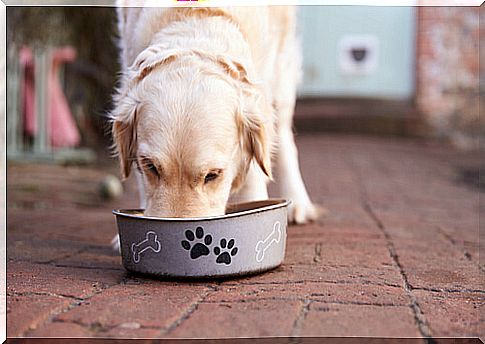Does Your Pet Have Cholesterol?

Not only humans can be affected by high levels of cholesterol in the blood. Although they are diagnosed less frequently, our pets can also suffer from problems derived from hyperlipidemia.
Next, we will help you understand how high cholesterol can harm the health of our pets. In addition, we will tell you the main causes of hyperlipidemia and the essential preventive measures to prevent it.
What is cholesterol?
It is one of the essential fats or lipids that make up our body. Although it has gained a lot of bad name for the problems derived from hyperlipidemia, our body produces it naturally and its molecules are present in all our cells.
In addition to facilitating the digestion of ingested food, cholesterols also participate in the synthesis of vitamin D and the production of different hormones.
As we know, there are two main types of cholesterol: HDL cholesterol and LDL cholesterol. LDL is low in density and can accumulate in the arteries, which is why it is often known as ‘bad cholesterol’. High-density HDL helps maintain a balanced metabolism and flush toxins and excess LDL from the body. For this reason, it is better known as the ‘good cholesterol’.
What does it mean to have high cholesterol?
Hyperlipidemia, better known as high cholesterol, is a complex disease that affects a large part of the human population globally. However, it is not an exclusive pathology of people, but it can also occur in animals.

The pictures of hyperlipidemia or hypercholesterolemia are characterized by the permanent presence of high levels of fats in the bloodstream. Or put in simpler terms: when blood cholesterol is always high and exceeds healthy measurement levels.
In this sense, it is important to differentiate the eventual or occasional elevations of a hyperlipidemic condition. After eating some foods or living situations of stress or strong emotions, it is normal for cholesterol levels to rise, but logically they should normalize in a short space of time.
People and pets with hyperlipidemia show permanent high cholesterol levels, even in normal, everyday situations. And that carries health risks.
Causes of hyperlipidemia
The causes of high cholesterol in pets are very similar to hyperlipidemia in humans. In general, it is usually associated with an unbalanced diet, a sedentary routine, certain metabolic disorders or congenital problems.
Next, we will look at the most common causes of hyperlipidemia in pets:
- A diet that is excessively rich in meat, dairy, or fatty foods.
- Sedentary life.
- Pregnancy.
- Nephrotic syndrome (degenerative disease that affects the kidneys).
- Problems in the functioning of the thyroid gland.
- Diabetes.
- Pancreatitis
- Excessive functioning of the adrenal glands.
- Cholestasis (obstruction of the bile ducts).
- Congenital abnormalities in lipid-removing enzymes or lipid-carrying proteins.
- Aging.
Symptoms of high cholesterol in our pets
Hyperlipidemia is a disease that usually progresses silently in the body of our pets. Its first symptoms are general and difficult to identify in animals. Therefore, the owners only perceive a problem when the frame is already advanced.

For this reason, it is essential to prevent it with a balanced diet and carry out regular blood tests to control cholesterol levels. These are the main symptoms of high cholesterol in pets:
- Abdominal pain.
- Patches or bruises on the skin.
- Dermal xanthomas (presence of fat-filled orange or yellowish bumps on the skin).
- Seizures
- Nervous system disorders.
Treating high cholesterol in pets
After confirming the diagnosis of hyperlipidemia, the veterinarian will be able to proceed to the choice of a treatment appropriate to the needs of your pet. In order to lower blood cholesterol levels, your healthcare professional will surely recommend a change in your diet.
In general, diets with less than 10% fat, with high-quality protein and rich in fiber are used. A drug or natural supplement may also be prescribed to help control fats in the blood.
How to prevent high cholesterol in your pet?
The best way to prevent high cholesterol in our pets is to provide them with balanced, high-quality nutrition. We should not provide human meals rich in fats, sugars or chemicals to our companions.
A daily physical exercise routine will also be essential for your pet to maintain an active metabolism and a healthy weight. Remember that a sedentary lifestyle increases the risk of developing behavior problems and many diseases.
Last but not least, your pet will need adequate preventive medicine throughout his life. In addition to making visits to the vet every six months, remember to also respect their vaccinations and deworming.









